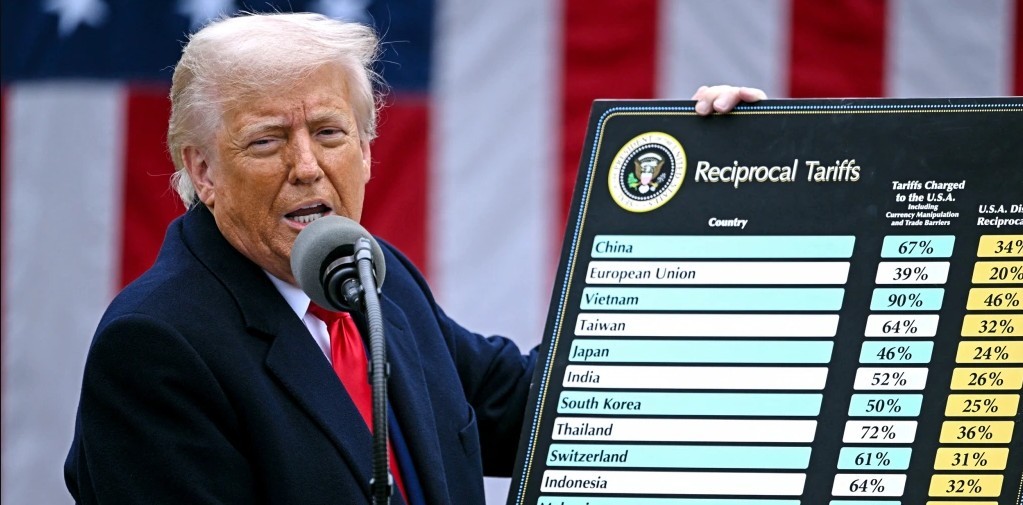Trump to Set New Tariffs Starting Monday for Non-Compliant Partners, but Extends Deadline to August 1 to Allow More Negotiations
President Donald Trump has extended the effective date of his sweeping country-by-country tariff plan to August 1, providing a short window for U.S. trading partners to finalize new trade deals or fac

President Donald Trump has extended the effective date of his sweeping country-by-country tariff plan to August 1, providing a short window for U.S. trading partners to finalize new trade deals or face steep tariff increases. However, he will begin issuing tariff notifications as early as Monday. The deadline was pushed back to allow more time for negotiations, according to Commerce Secretary Howard Lutnick.
“I think we’ll have most countries done by July 9, either a letter or a deal,” Trump told reporters on Sunday. He noted that tariff warning letters would begin going out Monday, with more following on Tuesday, and emphasized that a mix of completed deals and pending letters would form the basis of his tariff enforcement plan.
Trump also confirmed on Truth Social that the letters would begin being issued at 12:00 p.m. ET on Monday. In a separate post, he unveiled a new policy targeting countries aligned with the BRICS bloc—Brazil, Russia, India, China, South Africa, and recent additions like Egypt, Saudi Arabia, and the UAE—by imposing an automatic 10% tariff surcharge. Trump signaled that no exceptions would be made, despite his personal relationships with leaders in some of those nations, such as Saudi Arabia and the UAE.
The new BRICS-related measure follows growing tensions after BRICS leaders condemned attacks on Gaza and Iran, called for reforms to global institutions, and criticized the rise of protectionist policies, warning they could threaten global trade.
Treasury Secretary Scott Bessent said the administration expects to announce several major trade agreements in the coming days and noted “good progress” in talks with the European Union. He added that letters would also be sent to around 100 smaller countries with limited trade ties to the U.S., informing them of higher tariffs unless progress is made.
“President Trump’s going to be sending letters to some of our trading partners saying that if you don’t move things along, then on August 1 you will boomerang back to your April 2 tariff level,” Bessent said. “So I think we’re going to see a lot of deals very quickly.”
Kevin Hassett, head of the White House National Economic Council, said there could be flexibility for countries making genuine efforts to negotiate. “There are deadlines, and there are things that are close,” he said, adding that the president would have the final say on any extensions.
Stephen Miran, chair of the Council of Economic Advisers, echoed the sentiment, suggesting that countries making concessions may see their deadlines extended. “I hear good things about the talks with Europe. I hear good things about the talks with India,” he said. “So I would expect that a number of countries... might see their date rolled.”
The administration is currently focused on 18 key trading partners that account for 95% of the U.S. trade deficit. But officials say progress has been uneven, with some countries accused of dragging their feet. Thailand, seeking to avoid a punitive 36% tariff, is reportedly offering increased access to U.S. agricultural and industrial goods, along with commitments to purchase more American energy and Boeing aircraft, according to Thai Finance Minister Pichai Chunhavajira.
India, meanwhile, is reportedly close to finalizing a mini trade deal with the U.S., with tariffs averaging around 10% on Indian goods.
Hassett and Miran also touted recent framework agreements with Britain and Vietnam as models for future deals. “The Vietnam deal was fantastic,” Miran said. “It’s extremely one-sided. We get to apply a significant tariff to Vietnamese exports. They’re opening their markets to ours, applying zero tariff to our exports.”
Disclaimer: The views in this article are from the original Creator and do not represent the views or position of Hawk Insight. The content of the article is for reference, communication and learning only, and does not constitute investment advice. If it involves copyright issues, please contact us for deletion.